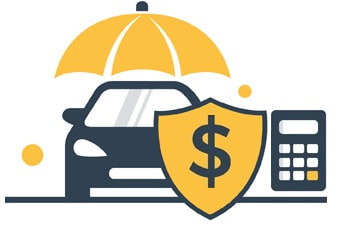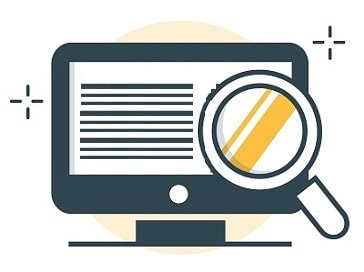What is a Finance Lease? The Definitive New Zealand Guide
Our guide explains financing leases, their pros and cons, alternatives, tax treatments, must-know facts and answer the most frequently asked questions concerning finance leases.
Updated 29 December 2023
Summary:
Our guide covers:
Important: This guide provides general information only. For specific advice around a finance lease, please speak to an accountant to ensure that your decision is suitable and tax-effective for your business.
Know This:
- One of the most common areas of uncertainty that New Zealand businesses have regarding capital expenditure and expansion is around leases.
- In particular, operating and financing leases are used interchangeably but have different meanings and implications on purposes, tax treatment and ultimate cost.
- Financing leases are a useful financing option for businesses that want to acquire assets but do not have the financial resources to purchase them outright.
- By allowing businesses to acquire and use assets without paying the full purchase price upfront, financing leases can provide access to important resources and equipment that may not have been otherwise available. However, just as they're useful to any business, it's essential to carefully consider the terms and conditions and the long-term costs before entering into an agreement.
- The tax treatment of a 'financing lease' differs depending on what the asset is and how the lease is structured. For example, financing leases classified as operating leases may be fully tax-deductible as a business expense, as the lessee only pays for the asset's use and does not have any ownership rights. However, financing leases classified as capital leases may be subject to different tax treatment, as the lessee is treated as the asset owner for tax purposes. In this case, the lessee may be able to claim depreciation deductions on the asset, but the lease payments may not be fully tax-deductible. Financing leases differ in their tax-effectiveness.
- Many New Zealand businesses planning out ways to finance new purchases have found finance leasing can become overly complex. The purpose of this guide is to explain financing leases, their pros and cons, alternatives, must-know facts and answer the most frequently asked questions concerning finance leases.
Our guide covers:
- What is a Financing Lease?
- Financing Lease Key Terms and Definitions Explained
- How do Financing Leases Differ from Operating Leases?
- Financing Lease Pros and Cons
- Must-Know Facts about Financing Leases
- Popular Financing Lease Companies in New Zealand
- Frequently Asked Questions
Important: This guide provides general information only. For specific advice around a finance lease, please speak to an accountant to ensure that your decision is suitable and tax-effective for your business.
Know This:
- Do you want to understand the difference between a Financing Lease and an Operating Lease? Our dedicated comparison guide explains what you need to know.
- Our guide to business vehicle finance options compares options if you're considering other options.
What is a Financing Lease?
- A financing lease, also known as a capital lease or finance lease, allows a business to acquire and use an asset without paying the full purchase price upfront. In a financing lease, the lessor (the person or entity providing the asset) retains ownership. However, the lessee (the business acquiring the asset) is responsible for paying the lease payments and maintaining the asset throughout the lease.
- Financing leases are commonly used in various industries to acquire assets such as machinery, equipment, and vehicles, including construction, transportation, and manufacturing.
- A financing lease is a lease agreement in which the lessor provides an asset to the lessee for a specified period, and the lessee makes periodic payments to the lessor for the use of the asset. The payments are typically structured as fixed instalments throughout the lease and may include additional charges such as interest and maintenance fees.
- In a financing lease, the lessor retains ownership of the asset and may require the lessee to return the asset once the lease term ends. However, the lessee may also have the option to buy the asset at the end of the lease term, either at a predetermined price or at fair market value.
Who provides financing leases?
Banks, financial institutions and leasing companies typically provide financing leases. These entities may offer financing leases directly to businesses or work with third-party vendors or dealerships to provide financing for purchasing specific assets.
Why would you take out a financing lease?
There are a few reasons why a business might choose to take out a financing lease:
- Access to assets you otherwise wouldn’t be able to purchase outright: A financing lease allows a business to acquire and use an asset that it may not have been able to purchase outright due to financial constraints or lack of creditworthiness.
- Increased flexibility depending on the business’s needs: Financing leases offer flexibility in terms of the lease term and the option to purchase the asset at the end of the lease. This flexibility allows businesses to adapt to changing circumstances and needs over time. For example, if a business had purchased an asset outright, it would be "stuck" with the asset and responsible for maintaining it as it depreciates.
- Off-balance sheet financing: In some cases, a financing lease might be classified as an operating lease, which means it doesn't appear on the lessee's balance sheet as a debt or asset. This classification can benefit businesses that want to maintain a favourable debt-to-equity ratio. Opting for a financing lease rather than purchasing the asset outright can mean that the balance sheet reflects a lower amount, improving the debt-to-equity ratio.
- Tax benefits: Financing leases may offer tax benefits for the lessee, such as the ability to write off the lease payments as a business expense.
|
Is Your Business Looking for a Loan to Fund an Asset Purchase? Avoid high-interest rates and high fees with our top two trusted business lenders:
|
Christopher Walsh
MoneyHub Founder |
Finance Lease Key Terms and Definitions Explained
To properly understand financing leases, there are several key terms and definitions that you should be familiar with:
- The terms of the lease: This includes the length of the lease term, the amount and frequency of the lease payments, and any additional charges such as interest or maintenance fees. It's important to review the lease terms carefully to ensure they are favourable and align with the business's needs and goals.
- Lease payments: Lease payments are the periodic payments that the lessee makes to the lessor for the ability to use the asset. These can occur across any period. However, payments are usually made monthly or quarterly in New Zealand.
- Interest rate: the percentage of the lease payments the lessor charges as a fee for providing the financing.
- Termination: You should understand the terms under which the lease can be terminated, whether by you or the lessor (the party leasing the asset). This option could include early termination fees or other penalties.
- Default: If you default on your lease payments, the lessor may have the right to repossess the asset. Ensure you understand the consequences of default and do your best to avoid it.
- The option to purchase the asset: Many financing leases offer the option for the lessee to buy the asset at the end of the lease term, either at a predetermined price or at fair market value. This option can be an important consideration for businesses that want to own the asset at the end of the lease term or expect the asset to appreciate over time.
- Renewal: Some financing leases can be renewed at the end of their initial term. If you're interested in renewing the lease, you should understand the terms and conditions under which this can be done.
What key technical factors do I need to know when considering a financing lease?
- Transferability: You should understand whether you can transfer the lease to another party and, if so, under what circumstances. This option could be important if you need to sell the leased asset or if you want to assign the lease to another person.
- The financial impact of the lease: Financing leases can significantly impact a business's cash flow, as the lessee is responsible for making periodic lease payments. It's essential for businesses to carefully consider the financial impact of a financing lease and ensure that they have the resources to make the required payments throughout the lease.
- Security deposit: Some lessors may require a security deposit to mitigate their risk in the event of default or other unforeseen circumstances. Make sure you understand any requirements for a security deposit and plan accordingly.
- Modifications: Depending on the lease terms, you may be able to modify the leased asset. However, you should be aware that any such modifications may require the lessor's approval and may be subject to additional fees or charges.
- Fair market value: the price the asset would reasonably be expected to sell for in the open market. For financing leases with the option or right to purchase the asset and transfer ownership at the end of the lease period, the fair market value is an important term for the lessor and lessee.
How do Financing Leases Differ from Operating Leases?
Financing and operating leases are lease agreements that allow a lessee (the person or entity using the leased asset) to use an asset owned by a lessor (the owner of the asset) in exchange for periodic payments. However, there are some significant differences between the two types of leases.
Further to the list below, our Operating Leases vs. Financing Leases guide has more details.
Further to the list below, our Operating Leases vs. Financing Leases guide has more details.
1. Purpose and intent.
Generally, companies will take out financing leases if they're looking to ultimately acquire the asset (hence the "financing" nature of the lease). During a financing lease, a company will enter into the lease to ideally purchase the asset once the lease term ends (when ownership transfers from the lessor to the lessee).
In contrast, operating leases are usually entered into for the short-term purpose of accessing and using an asset without the underlying intent of purchasing the asset once the lease term ends.
In contrast, operating leases are usually entered into for the short-term purpose of accessing and using an asset without the underlying intent of purchasing the asset once the lease term ends.
2. Differences in ownership.
With a financing lease, the lessee can purchase the asset once the lease term ends for a predetermined price. This option means that the lessee takes on the risk of ownership and may be responsible for maintenance and repair costs. With an operating lease, the lessor retains ownership of the asset and is responsible for maintenance and repair costs.
3. Length of the underlying lease.
Financing leases tend to be longer than operating leases, often lasting for several years. On the other hand, operating leases tend to be shorter, typically lasting for a few months to a few years.
4. Financing mechanism.
Financing leases are often used to finance an asset's purchase, with the lessee making payments towards the purchase price throughout the lease. However, operating leases don’t involve the transfer of ownership and are generally not used as a financing mechanism.
5. Accounting treatment.
The accounting treatment of financing leases and operating leases are different. Financing leases are treated as a form of financing, with the leased asset being recorded as an asset on the lessee's balance sheet and the lease payments being recorded as a liability. On the other hand, operating leases are treated as an operating expense, with the leased asset not being recorded on the lessee's balance sheet.
Know This: It's important to carefully consider the terms of a lease agreement and understand the differences between financing and operating leases before entering a lease agreement.
Know This: It's important to carefully consider the terms of a lease agreement and understand the differences between financing and operating leases before entering a lease agreement.
|
Is Your Business Looking for a Loan to Fund an Asset Purchase? Avoid high-interest rates and high fees with our top two trusted business lenders:
|
Christopher Walsh
MoneyHub Founder |
Finance Leases - Pros and Cons
Pros:
There are several benefits to taking out financing leases:
There are several benefits to taking out financing leases:
- Access to assets: Financing leases allow businesses to acquire and use assets that they may not have been able to purchase outright due to financial constraints or lack of creditworthiness.
- Flexibility: Financing leases offer flexibility in terms of the lease term and the option to purchase the asset at the end of the lease, allowing businesses to adapt to changing circumstances and needs over time.
- Tax benefits: Financing leases may offer tax benefits for the lessee, such as the ability to write off the lease payments as a business expense.
Cons:
- Ongoing payments: Financing leases require the lessee to make periodic payments throughout the lease, which can burden businesses with limited cash flow.
- Interest charges: Financing leases may include interest charges, which can increase the overall cost of the lease.
- Limited flexibility: Once a financing lease has been entered into, it's difficult for the lessee to change the terms or cancel the lease.
- No ownership: The lessee does not own the asset during the lease term, which can be disadvantageous if the asset appreciates over time. At the end of the financing lease, generally, the lessor will provide the option to sell the asset to the lessee at fair market value. If the asset has risen in value during the lease term, it will cost the lessee more to purchase the asset.
Must-Know Facts about Financing Leases in New Zealand
Financing leases can be cost-effective and provide a positive ROI if the terms and structuring are favourable. Our list below explains what you need to know to make an informed decision. However, we strongly suggest discussing your needs with an accountant and comparing quotes and proposals in detail.
1. Compare rates and terms from multiple lenders to ensure you get the best deal.
- Don't rush in - the market is competitive for most finance leases so compare financing lease options from different lessors to ensure you get the best deal.
- Multiple alternative asset owners often offer lease terms of varying length and rate. What drives the overall cost is the interest rate; compare and contrast different options available to ensure that you're paying the lowest interest rate possible.
2. Financing leases are classified differently compared to operating leases for tax purposes.
- One important aspect of financing leases is the classification of the lease as either an operating lease or a capital lease. This determination is based on the lease terms and the nature of the asset being leased, and it can have significant implications for the lessee's financial statements and tax obligations.
- Operating leases are typically classified as off-balance sheet liabilities, meaning they don't appear on the lessee's balance sheet as a debt or asset. This classification can benefit businesses that want to maintain a favourable debt-to-equity ratio, allowing them to acquire and use assets without incurring debt or counting the assets as part of their net worth.
- However, operating leases may still impact the lessee's cash flow, as the lessee is responsible for making periodic lease payments.
- On the other hand, financing leases are classified as long-term debts or assets on the lessee's balance sheet. This classification means that the lessee is responsible for the asset's full cost over the lease, including any interest charges.
- Capital leases may offer the option for the lessee to purchase the asset at the end of the lease term, either at a predetermined price or at fair market value. Capital leases can benefit businesses that want to own the asset at the end of the lease term or expect the asset to appreciate over time.
3. Carefully review the terms of the lease and seek legal advice if necessary.
- It's important for businesses to thoroughly understand the financing lease's terms, including the lease's length, the payment schedule, and any termination restrictions.
- It's always a good idea to seek legal advice before entering into any financial agreement, including an operating lease. A lawyer can help you understand the lease terms and ensure that your interests are protected.
- For more general business-specific goals and advice, consulting with an accountant can be useful to determine whether a financing lease makes sense.
4. Consider the total long-term cost of the lease, including any interest charges and the option to buy the asset at the end of the lease.
- While financing leases can seem like a far cheaper and obvious solution to many New Zealand businesses, it's important to consider all the costs over the life of the lease.
- Many times, finance lessors offer terms that extract more value out of an existing asset than if they were to sell it upfront. If you're likely to need the asset for a long time, it could make more sense to purchase the asset outright instead of paying a higher lease payment amount over a long period.
- To know for sure, you're best to compare both options side by side - if you need to borrow to buy the assets, our business loans guide has more information about the latest interest rates.
5. Establish a good working relationship with the lessor and communicate openly and transparently.
- Most of the time, if any issues arise related to the lease, it pays to be as open and honest with the lessor (owner of the asset).
- The more transparent you're with the asset owner, the more likely they are to be lenient regarding costs, renewal and any issues that arise.
Popular Financing Lease Companies in New Zealand
LeasePlan
LeasePlan is a New Zealand-based company that offers financing leases for many assets, including cars, trucks, machinery, and equipment. They have a variety of financing lease terms available, ranging from 12 to 60 months, and their financing lease fees are competitive and transparent.
Website: LeasePlan
Website: LeasePlan
FlexiLease
FlexiLease is a leading provider of financing leases in New Zealand, focusing on providing leases for vehicles, machinery, and equipment. They offer a range of financing lease terms to suit the needs of their clients, and their financing lease fees are competitive and transparent. FlexiLease is known for its wide range of leasing options and reliable customer service.
Website: FlexiLease
Website: FlexiLease
Orix
Orix New Zealand is a leading provider of financing leases in New Zealand, focusing on providing leases for vehicles, machinery, and equipment. They offer a range of financing lease terms to suit the needs of their clients, and their financing lease fees are competitive and transparent. Orix New Zealand is known for their wide range of leasing options and reliable customer service.
In addition to financing leases, Orix New Zealand also offers a range of other financial services, including business loans and equipment finance. They pride themselves on providing personalised service and tailored financial solutions to help their clients achieve their business goals. Orix New Zealand is part of the larger Orix Corporation, a global financial services company with a strong presence in Asia, the Americas, and Europe.
Website: Orix
In addition to financing leases, Orix New Zealand also offers a range of other financial services, including business loans and equipment finance. They pride themselves on providing personalised service and tailored financial solutions to help their clients achieve their business goals. Orix New Zealand is part of the larger Orix Corporation, a global financial services company with a strong presence in Asia, the Americas, and Europe.
Website: Orix
eLeasing
eLeasing New Zealand is a leading provider of financing leases in New Zealand, focusing on providing leases for vehicles, machinery, and equipment. They offer a range of financing lease terms to suit the needs of their clients, and their financing lease fees are competitive and transparent.
In addition to financing leases, eLeasing New Zealand offers various other financial services, including business loans and equipment finance. They pride themselves on providing personalised service and tailored financial solutions to help their clients achieve their business goals.
Website: eLeasing
In addition to financing leases, eLeasing New Zealand offers various other financial services, including business loans and equipment finance. They pride themselves on providing personalised service and tailored financial solutions to help their clients achieve their business goals.
Website: eLeasing
Interleasing New Zealand
Interleasing New Zealand is a leading provider of financing leases in New Zealand, focusing on providing leases for vehicles, machinery, and equipment. They offer a range of financing lease terms to suit the needs of their clients, and their financing lease fees are competitive and transparent.
In addition to financing leases, Interleasing New Zealand offers various other financial services, including business loans, equipment finance, and vehicle finance. They pride themselves on providing personalised service and tailored financial solutions to help their clients achieve their business goals.
Website: Interleasing New Zealand
In addition to financing leases, Interleasing New Zealand offers various other financial services, including business loans, equipment finance, and vehicle finance. They pride themselves on providing personalised service and tailored financial solutions to help their clients achieve their business goals.
Website: Interleasing New Zealand
Customfleet
Customfleet New Zealand is a leading provider of equipment leases in New Zealand, focusing on providing leases for a wide range of assets, including machinery, equipment, and vehicles. They offer a range of equipment lease terms to suit the needs of their clients, and their equipment lease fees are competitive and transparent.
In addition to equipment leases, Customfleet New Zealand also offers various other financial services, including business loans, vehicle finance, and fleet management services. They pride themselves on providing personalised service and tailored financial solutions to help their clients achieve their business goals.
Website: Customfleet
In addition to equipment leases, Customfleet New Zealand also offers various other financial services, including business loans, vehicle finance, and fleet management services. They pride themselves on providing personalised service and tailored financial solutions to help their clients achieve their business goals.
Website: Customfleet
Frequently Asked Questions
Who provides financing leases in New Zealand?
Banks, financial institutions, and leasing companies typically provide financing leases in New Zealand. These entities may offer financing leases directly to businesses or work with third-party vendors or dealerships to provide financing for the purchase of specific assets.
Are there any tax benefits to financing leases in New Zealand?
The specific tax treatment of financing leases may vary depending on the terms of the lease and the nature of the asset being leased. Therefore, it's important to consult with an accountant and the leasing company to determine the tax implications of a financing lease.
What are some top tips for businesses considering a financing lease in New Zealand?
Some top tips for businesses considering a financing lease in New Zealand include comparing rates and terms from multiple lenders, carefully reviewing the terms of the lease agreement, considering the long-term cost of the lease, determining whether the financing lease will be classified as an operating lease or a capital lease, and consulting with an accountant.
Which New Zealand businesses should take out financing leases?
It depends. For some industries, it's extremely common to use financing leases to conduct business (such as the construction industry). For others, it may be more common to purchase the asset outright, given the need to maintain control over it. However, for most New Zealand businesses, if a financing lease is an option, it's essential to seriously consider taking one out rather than purchasing the asset outright.
I’m worried about classifying my financing lease wrong from a tax perspective. What are the tax implications of financing leases?
One important aspect of financing leases in New Zealand is the tax treatment of the lease payments. In many cases, the lease payments made by the lessee under a financing lease may be tax-deductible as a business expense. However, the specific tax treatment of financing leases may vary depending on the terms of the lease and the nature of the asset being leased.
For example, financing leases classified as operating leases may be fully tax-deductible as a business expense, as the lessee only pays for the asset's use and does not have any ownership rights.
On the other hand, financing leases classified as capital leases may be subject to different tax treatment, as the lessee is treated as the asset owner for tax purposes. In this case, the lessee may be able to claim depreciation deductions on the asset, but the lease payments may not be fully tax-deductible.
For example, financing leases classified as operating leases may be fully tax-deductible as a business expense, as the lessee only pays for the asset's use and does not have any ownership rights.
On the other hand, financing leases classified as capital leases may be subject to different tax treatment, as the lessee is treated as the asset owner for tax purposes. In this case, the lessee may be able to claim depreciation deductions on the asset, but the lease payments may not be fully tax-deductible.
|
Is Your Business Looking for a Loan to Fund an Asset Purchase? Avoid high-interest rates and high fees with our top two trusted business lenders:
|
Christopher Walsh
MoneyHub Founder |
Related guides:
- Business Loan Calculator
- Business Vehicle Finance Options
- Compare Business Loans
- Business Borrowing Options
- Small Business Loans
- Operating Leases
- Operating Leases vs Financing Leases
- Prospa Business Loans Review
- Bizcap Business Loans Review
- Vehicle Leasing
- Business Credit Cards
- Business Insurance
- Public Liability Insurance
- Essential Money-Saving Tips For Businesses
- How to Start a Business in New Zealand
- Get Debtors to Pay Overdue Invoices























